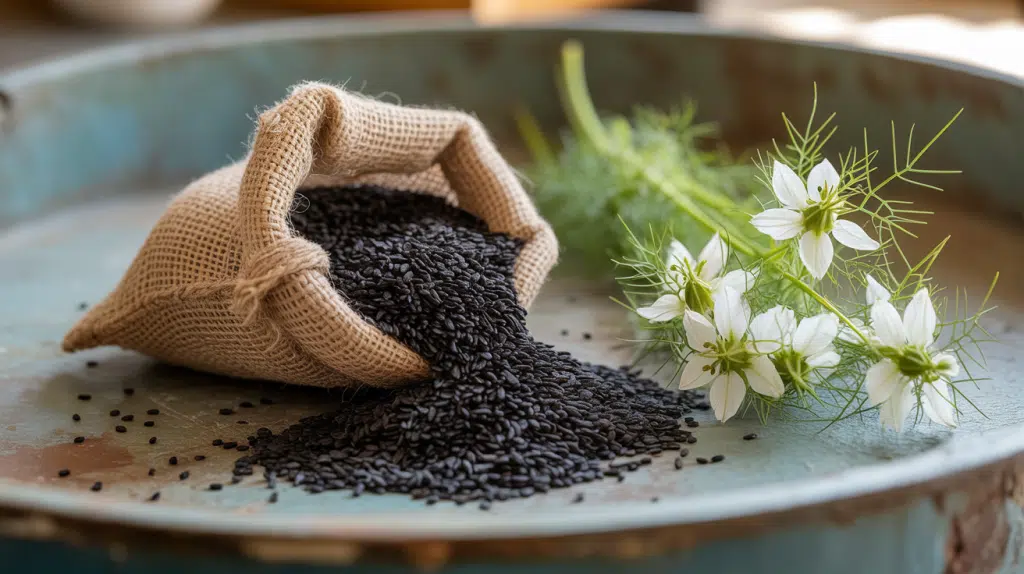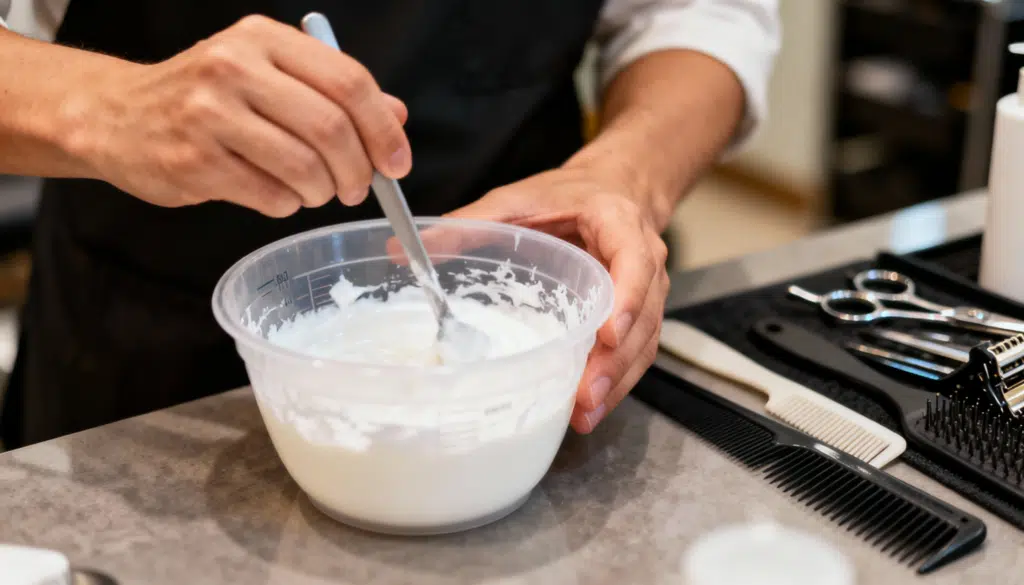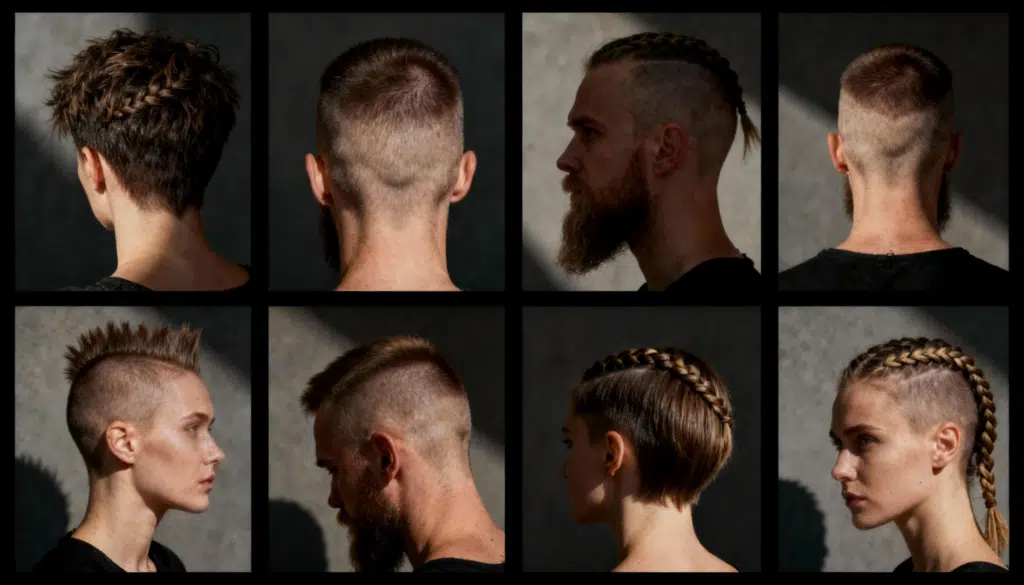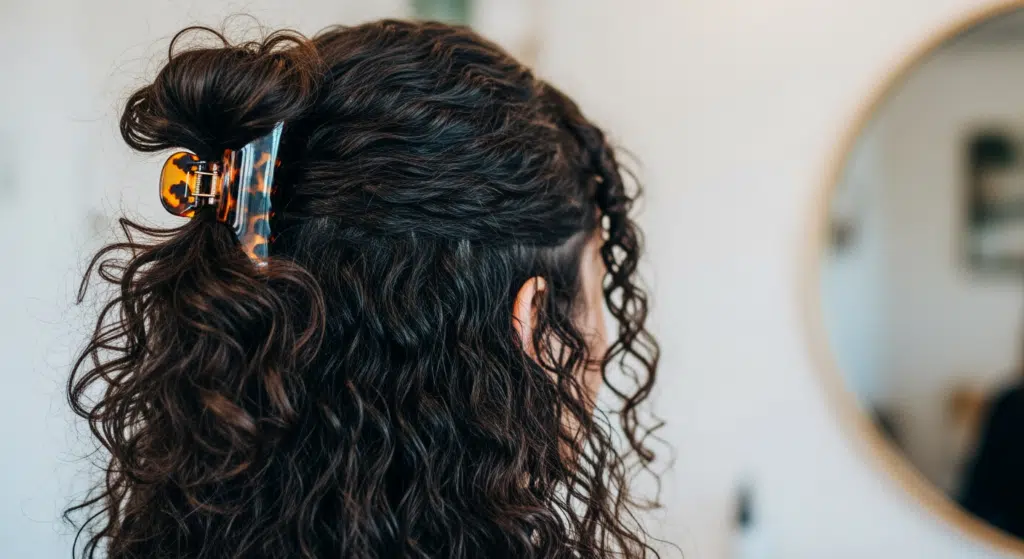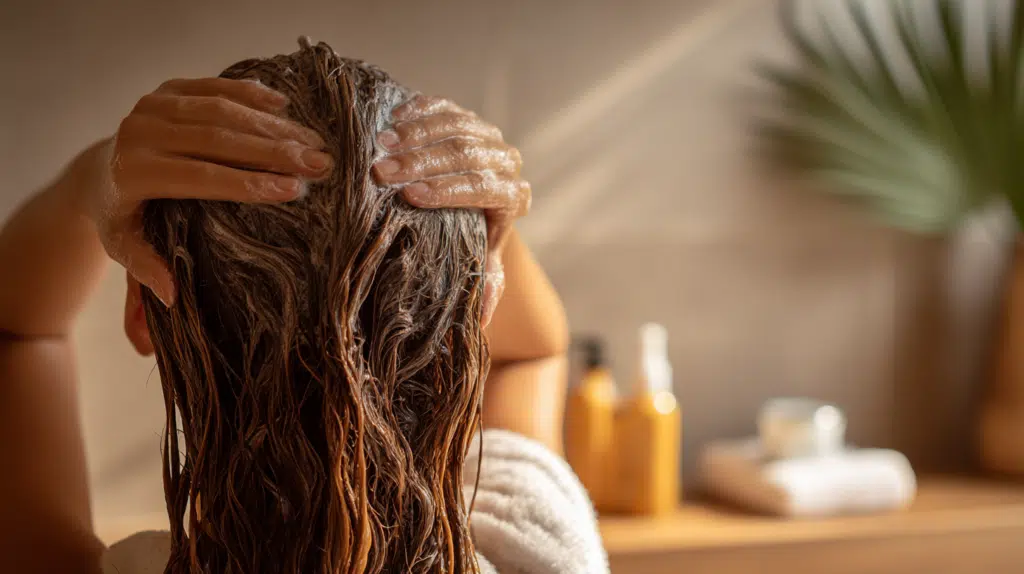You might consider spending hundreds on treatments that barely work. Stop right there!
Black seed oil tells a different story. This ancient remedy contains powerful compounds that revive tired follicles and strengthen hair naturally.
It helps with thinning strands, scalp issues, and dull locks that trouble millions daily.
Research shows it works as well as popular hair growth treatments, minus harsh side effects. There are many black seed oil benefits for hair out there.
This blog contains some of those black seed oil benefits that everyone must know. These details matter because poorly extracted oil won’t give you the hair results you want.
How is Black Seed Oil Extracted?
Black seed oil comes from Nigella Sativa seeds, also called kalonji. The extraction method makes all the difference for hair benefits.
Cold-pressed oil keeps the most nutrients intact, making it the top choice for potency. CO₂ supercritical extraction creates the purest form but costs more.
Avoid solvent-extracted versions because they use harsh chemicals that strip away helpful compounds.
When shopping, look for labels that say “unrefined” and “hexane-free”. Quality oils come in dark glass bottles to protect from light damage.
From reducing inflammation to boosting circulation, black seed oil offers real solutions for frustrating hair problems.
Black Seed Oil for Hair Loss
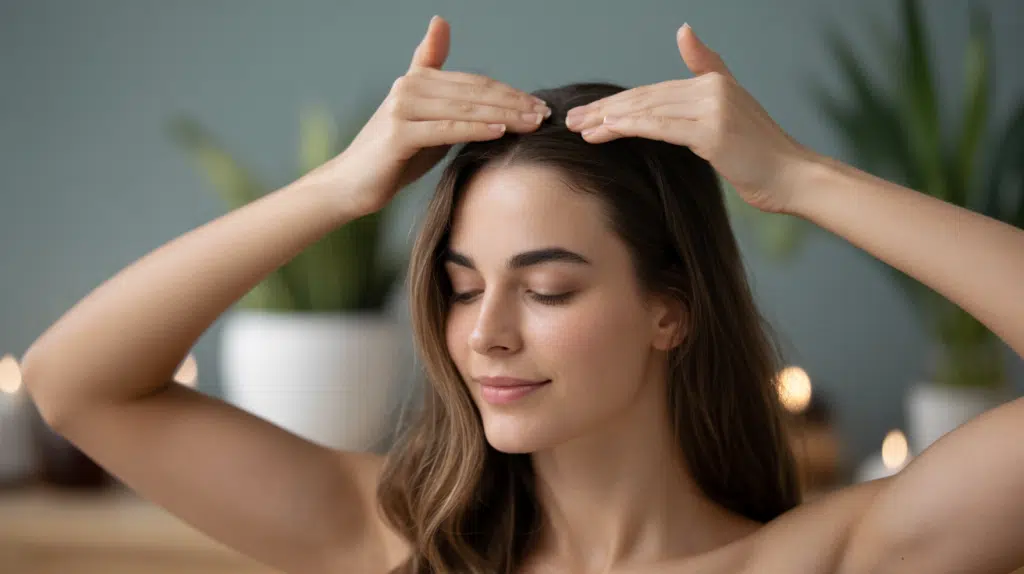
Hair loss affects both men and women, but black seed oil offers natural hope for those struggling with thinning hair.
Studies show that consistent use can reduce hair fall by up to 76% within three months, giving people real results they can see and feel.
The oil works by strengthening hair follicles at the root level while calming scalp inflammation that often contributes to premature shedding.
Its ability to boost blood circulation means more nutrients reach hair follicles, supporting improved density and thicker-looking hair over time.
Unlike harsh chemical treatments that can irritate sensitive scalps, black seed oil nourishes gently without unwanted side effects.
Telogen Effluvium
Telogen Effluvium is a common type of temporary hair loss that occurs when a large number of hair follicles enter the “telogen” (resting) phase of the hair growth cycle prematurely, leading to increased hair shedding.
Black seed oil helps in telogen effluvium by reducing scalp inflammation, supporting hair follicle health, and extending the growth phase of hair.
Rich in thymoquinone, it provides antioxidant and anti-inflammatory effects, which may minimize premature hair shedding and improve hair density and thickness within three months of regular use.
Benefits of Black Seed Oil for Hair
Black seed oil is often highlighted in hair care routines for its nourishing profile and scalp-friendly properties.
Many users incorporate it as a simple, natural addition to support overall hair feel and manageability, complementing existing products without overhauling their regimen.
1. Histamine-calming relief for itchy scalps: Helps moderate scalp histamine responses, easing itch and discomfort that disrupts a healthy hair environment.
2. Dual-pathway anti-inflammatory support for the scalp: Helps quiet irritation on the scalp, supporting conditions where hair stays anchored comfortably.
3. Targeted antimicrobial help for dandruff-prone scalps: Activity against common scalp yeasts aids flake control and maintains a cleaner hair environment.
4. Supports the scalp’s antimicrobial peptides: May encourage innate defenses that keep the scalp balanced for healthier hair growth.
5. Soothes micro-irritations from scratching or tight styles: Helps scalp recover from minor mechanical stress, preserving a better foundation for hair.
6. Potent antioxidant defense for hair fibers and scalp: Helps counter oxidative stress that irritates the scalp and makes hair look dull.
7. Strengthens weak hair follicles: Provides nutrients that help follicles anchor hair strands more securely at the root level.
8. Improves scalp circulation: Massaging with oil stimulates blood flow, naturally bringing more nutrients to hair follicles.
9. Moisturizes dry, brittle hair: Rich fatty acids penetrate the hair shaft to restore moisture and flexibility.
10. Adds natural shine to dull hair: Smooths hair cuticles to reflect light better, creating healthy-looking gloss without chemicals.
11. Reduces frizz and flyaways: Forms a protective layer on hair strands that helps control humidity-induced frizz effectively.
12. Protects from environmental damage: Creates a barrier against pollution, UV rays, and harsh weather that weakens hair.
13. Helps slow premature graying: Antioxidants may help protect melanin-producing cells in hair follicles from early damage.
14. Softens coarse, unmanageable hair: Natural emollients help smooth rough hair texture for easier styling and handling.
15. Reduces hair breakage and splitting: Strengthens hair shaft structure to prevent snapping during brushing and styling.
16. Supports overall hair thickness: Regular use may help existing hair appear fuller by improving individual strand health.
17. Balances scalp pH levels: Helps maintain optimal scalp acidity for healthy hair growth and reduced irritation.
18. Provides essential fatty acids: Supplies omega-3 and omega-6 fatty acids that hair follicles need for proper function.
19. Helps seal hair cuticles: Smooths the outer layer of hair strands to lock in moisture and nutrients effectively.
The Wider Health Perks of Black Seed Oil
Black seed oil is commonly used for everyday wellness. Many include small amounts in daily routines for general balance, comfort, and vitality.
Those with health conditions or medications should check with a healthcare professional first.
Immune System Support
Black seed oil may help strengthen the body’s natural defenses against common illnesses.
Its compounds support immune cell function and help the body respond to seasonal challenges. Many users report fewer colds and faster recovery times when taking it regularly.
Skin Health Benefits
Beyond hair, black seed oil helps with various skin concerns, including dryness, irritation, and blemishes. Its anti-inflammatory properties calm red, sensitive areas while moisturizing compounds restore skin barrier function.
Black seed oil benefits in conditions like Psoriasis and Eczema.
Digestive Wellness
Black seed oil supports digestive comfort through its natural compounds that help maintain gut balance.
Many users find it helps with occasional stomach discomfort, bloating, and irregular digestion patterns. The oil may support healthy gut bacteria while reducing inflammation in digestive tissues.
Weight Management
Clinical studies have found that daily supplementation with black seed oil may help reduce appetite, body mass index, and body weight.
It may also lower waist circumference and body fat. These effects are often attributed to thymoquinone, which influences hunger-related hormones and helps reduce inflammation, supporting healthy metabolism and fat loss.
Respiratory Support
The oil may help maintain clear breathing and respiratory comfort, especially during seasonal changes. Its natural compounds support healthy lung function and may reduce minor respiratory irritation.
The anti-inflammatory properties may help calm airways naturally.
What Is the Best Time to Take Black Seed Oil
The best time to take black seed oil is typically twice a day is once in the morning on an empty stomach and again at night before bed.
This schedule helps maximize absorption and allows the body to benefit from its anti-inflammatory and antioxidant properties throughout the day and night.
Some prefer mixing it with juice or honey to mask its strong, peppery flavor. Consistency is key, so taking it at the same time daily is recommended.
While there’s flexibility based on personal preference and product type (oil, capsules, or gummies), following the dosage instructions provided with the product ensures optimal results.
Disclaimer: This content is for general education and not a substitute for professional medical advice. Consulting a healthcare provider is advised to tailor timing and dosage to individual needs.
Why Not To Use Concentrated Black Seed Oil
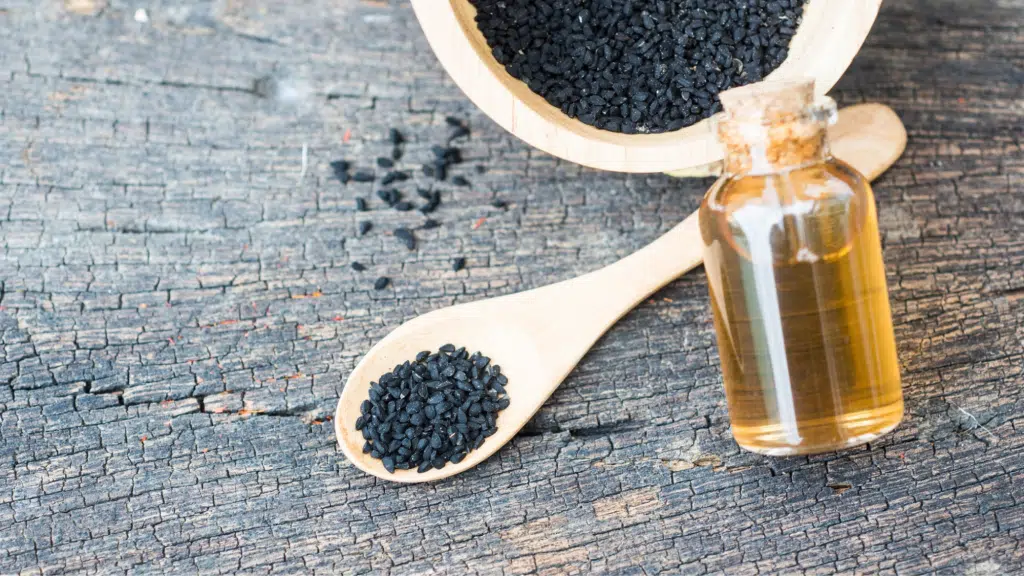
Pure black seed oil can cause skin irritation, redness, and burning sensations when applied directly. Its potent compounds may overwhelm sensitive scalp tissue, leading to contact dermatitis or allergic reactions within hours of application.
Often, people develop painful welts or persistent itching that lasts for days. Concentrated application can also stain clothing and bedding permanently, creating unsightly dark spots that regular washing cannot remove.
The strong, peppery scent becomes overpowering without dilution, causing headaches or nausea in sensitive individuals.
Additionally, undiluted oil sits on the scalp surface rather than absorbing properly, wasting product and reducing effectiveness.
Most people experience better results and fewer side effects when mixing it with gentler carrier oils that help distribute the active compounds more evenly across the scalp.
How to Dilute Black Seed Oil
Mixing black seed oil with carrier oils reduces irritation while maintaining benefits. There can be several black seed oil benefits for hair once you use these blends daily.
The following are proven combinations that work well for different hair types and concerns.
1. Jojoba Oil Mix
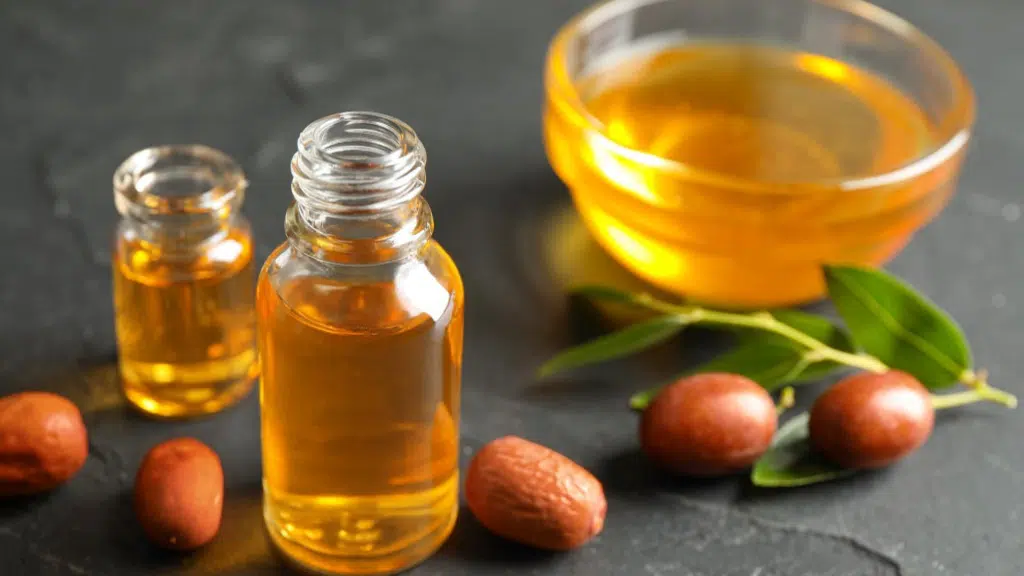
Jojoba oil mimics natural scalp oils, making it an ideal carrier for black seed oil.
Mix one part black seed oil with three parts jojoba for sensitive scalps, or equal parts for normal skin. This combination absorbs quickly without leaving greasy residue.
Jojoba’s long shelf life prevents the mixture from going rancid quickly, making it perfect for regular use.
2. Castor Oil Blend
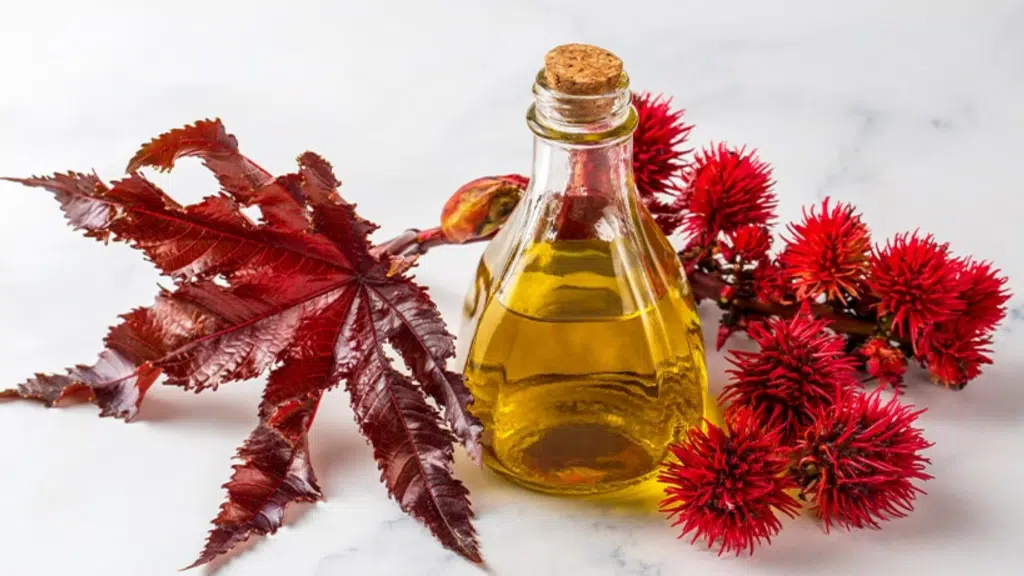
Castor oil pairs well with black seed oil for hair growth benefits. Use two parts castor oil to one part black seed oil for a thick, conditioning treatment.
This mixture works best for dry, damaged hair that needs intensive moisture. The combination may feel heavy, so focus application on hair lengths rather than roots to avoid weighing down fine hair.
3. Olive Oil Combination
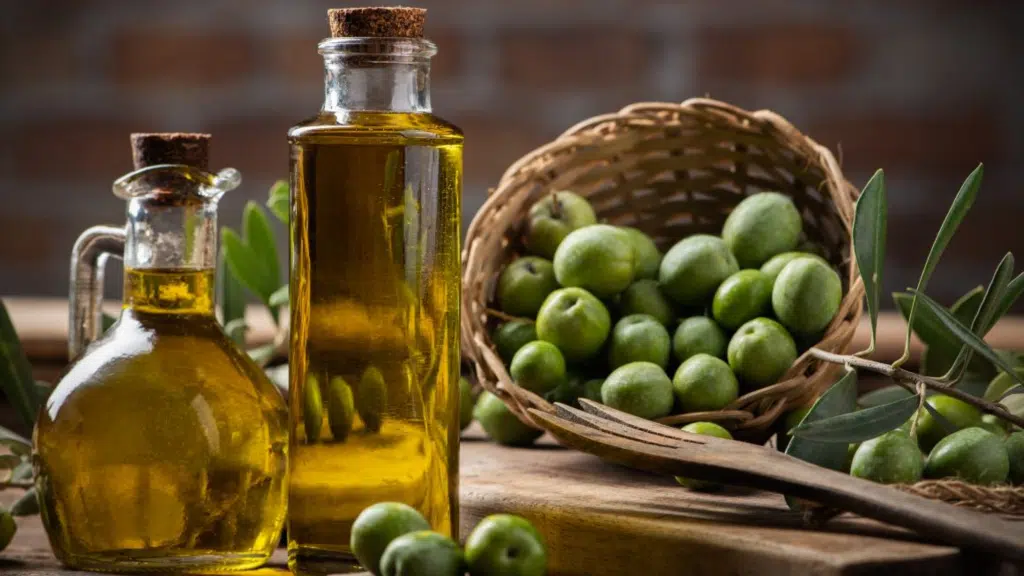
Extra virgin olive oil creates a nourishing blend with black seed oil for deep conditioning treatments.
Mix equal parts of both oils for weekly intensive treatments. This combination works well for coarse, curly hair that needs extra moisture and manageability. This multiplies black seed oil benefits for hair.
Heat the mixture slightly before application for better penetration, but test the temperature carefully to avoid burns.
4. Rosemary Oil Enhancement
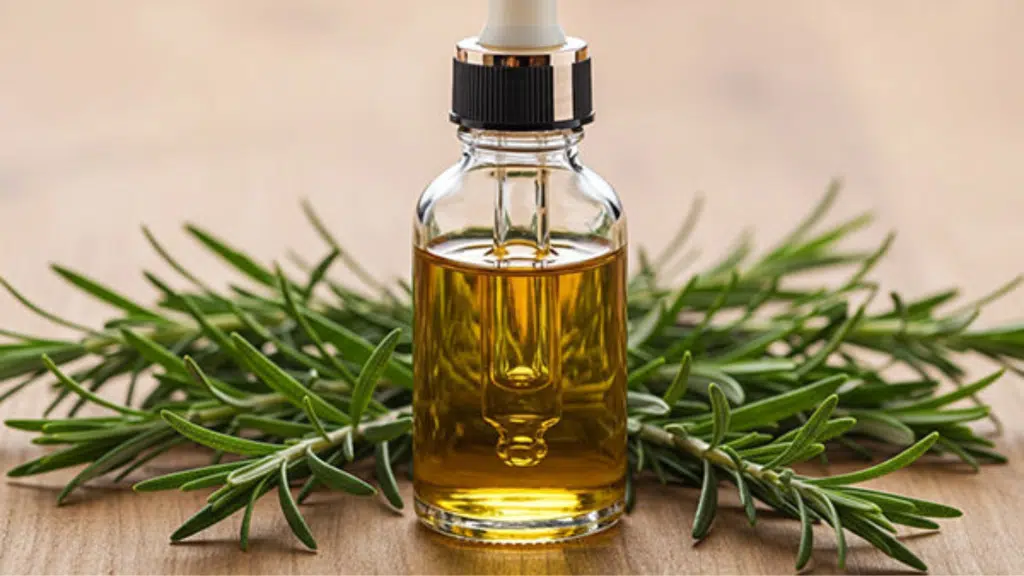
Add rosemary essential oil to black seed oil and a carrier like jojoba for enhanced hair growth benefits.
Use two drops of rosemary oil per tablespoon of black seed and carrier oil mixture. This blend may help stimulate circulation while providing antimicrobial benefits.
The rosemary scent also helps mask black seed oil’s strong natural odor effectively.
5. Almond Oil Blend
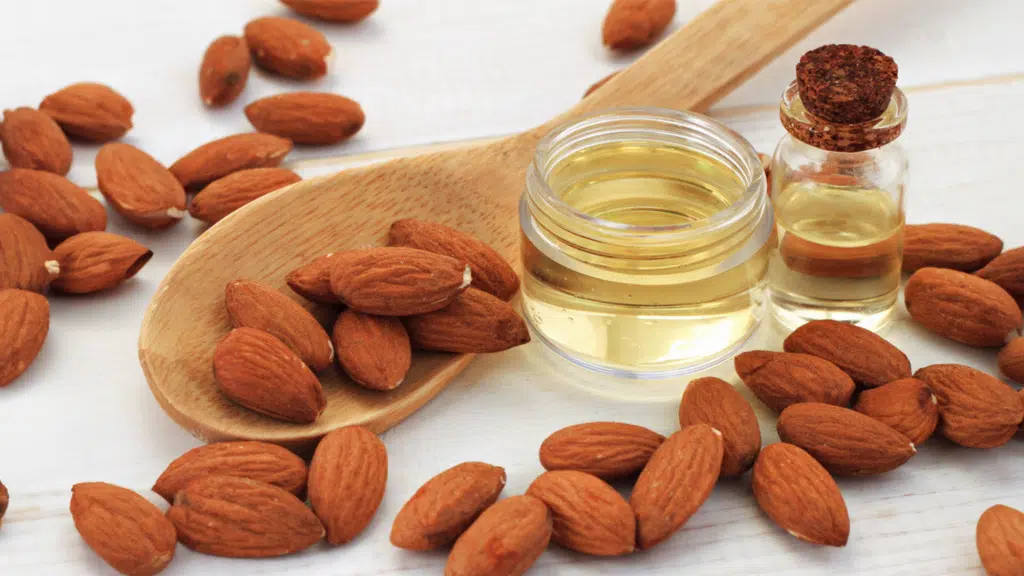
The combination of almond oil and black seed oil is considered very beneficial. Almond oil is rich in vitamins E and D, magnesium, and calcium, which nourish and moisturize the scalp, reduce inflammation, and help combat dandruff.
Black seed oil adds potent anti-inflammatory, antioxidant, and antimicrobial properties. Together, they promote healthier scalp conditions, strengthen hair follicles, reduce hair fall, and improve hair texture and shine.
This blend is often used to support hair growth, scalp health, and to manage dryness or irritation effectively.
How to Massage for Best Results
Start with clean, damp hair for better oil absorption. Apply the diluted mixture to fingertips and work in small sections from scalp to ends. This improves black seed oil benefits for hair and overall.
Use gentle circular motions with fingertips, not nails, to avoid scratching delicate scalp tissue. Massage for three to five minutes to stimulate blood circulation and help the oils penetrate hair follicles.
Focus extra attention on problem areas like thinning spots or dry patches.
Cover hair with a shower cap or warm towel for twenty to thirty minutes before washing out with gentle shampoo.
Proper massage techniques help improve blood flow to hair follicles while ensuring oils penetrate effectively. Also increases black seed oil benefits for hair. Different methods work better for various hair types and scalp sensitivities.
- Circular fingertip massage – Use gentle circular motions with fingertips across the scalp
- Kneading technique – Gently squeeze and release sections of scalp between fingers
- Long stroke method – Run fingers from hairline to neck in smooth, continuous motions
- Pressure point massage – Apply gentle pressure to specific spots on the temples and the crown
- Sectional massage – Divide hair into parts and massage each section thoroughly
- Gentle tapping – Use fingertips to lightly tap across the entire scalp surface
Why Black Seed Oil is Best for Coils and Curly Hair Type
Coily and curly hair faces unique challenges that black seed oil handles perfectly. These hair types tend to be drier and more porous, needing oils that lock in moisture without clogging follicles. Here black seed oil benefits for hair are especially for this hair type.
Black seed oil provides just the right slip for painless detangling while reducing styling friction that leads to breakage.
Black seed oil softens hair cuticles naturally, helping curls clump together for better definition. The oil’s gentle nature works well with sensitive scalps, especially under protective styles like braids or twists.
Its antioxidant properties shield hair from daily damage caused by sun exposure and heat styling. Whether used as a pre-wash treatment or mixed with styling products, it prevents hygral fatigue from repeated wetting and drying cycles.
Black seed oil is light enough for layering yet rich enough to control frizz; it fits perfectly into LOC and LCO hair care routines.
Side-effects of Black Seed Oil
Black seed oil is often well tolerated when diluted, but some people should avoid it or seek medical guidance, especially for oral use or concentrated topicals, due to higher risks of irritation or drug interactions. Instead of black seed oil benefits for hair, it can prove bad for certain people.
Black seed oil can prove disadvantageous to certain individuals with ceratin conditions, therefore, they must completely avoid it.
- Pregnant or breastfeeding individuals
- People with Nigella sativa/Ranunculaceae allergies
- Those on anticoagulants or with bleeding disorders
- Individuals with diabetes or on glucose-lowering medications
- People scheduled for surgery within two weeks
Black seed oil contains compounds that affect blood clotting, blood sugar levels, and immune responses. These properties can interfere with medications or create complications during medical procedures.
Pregnant women should avoid it since safety data remains limited. People with plant allergies may experience reactions ranging from mild skin irritation to serious respiratory symptoms.
Tip: Others should patch test diluted formulas and keep doses modest. For persistent scalp concerns or if taking medications, consult a dermatologist or clinician before routine use.
Conclusion
Black seed oil earns its place in hair care as a versatile, scalp-friendly helper rather than a miracle cure.
When used consistently, especially in pre-poo shields, diluted scalp massages, or light leave-in finishes. It can calm irritation, reduce friction, and help curls and coils retain moisture and definition.
There are many Black seed oil benefits for hair out there. Choose cold-pressed, hexane-free oils, dilute wisely, and patch test.
Pair with jojoba, argan, or castor to suit porosity. For ingestion, keep servings modest and clinician-approved.
Track changes for 8–12 weeks, adjust by feel, and let a steady routine do the quiet, visible work.
Frequently Asked Questions (FAQs)
Is Black Seed Oil the Same as Black Cumin Oil?
Not always. “Black seed oil” typically means Nigella sativa; “black cumin” can also refer to other plants. Check the label for Nigella sativa to be sure.
Will Black Seed Oil Darken Hair or Reverse Grays?
There’s no solid evidence it reverses grays or truly darkens hair. It can add shine and reduce frizz, which may make hair look slightly deeper temporarily. It can, however, help prevent graying of hair due to consistent use.
What Not to Mix with Black Seed Oil?
Do not mix black seed oil with anticoagulants, antidiabetic drugs, antihypertensive medications, sedatives, immunosuppressants, or serotonergic drugs. These combinations can increase bleeding, dangerously lower blood sugar or blood pressure, and cause excessive drowsiness



